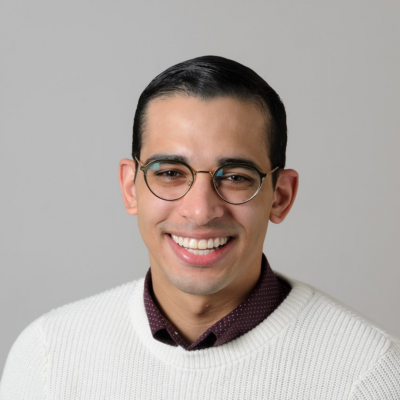
Recently the Department of Public Policy (DPP) had a conversation with Master of Public Administration (MPA) Student Phillip Hyman. Check out our Q&A with Phillip below.
Where did your interest in public service begin?
I suppose I have always been interested in public service, but I did not seriously consider a career in it until after I finished my undergraduate degree at Eastern Connecticut State University. After graduating, I worked briefly for a public-interest law firm and then joined ConnectiCorps, an AmeriCorps program that assisted nonprofits in building volunteer capacity during the COVID-19 pandemic. While I was in ConnectiCorps, I found that I really enjoyed the process of recruiting volunteers and researching ways to improve their overall experience with the nonprofit. The experience with ConnectiCorps made me realize that I very much enjoyed working in a public-facing position, specifically when it involved volunteer/personnel management.
What are you doing at your internship with the UConn Office of the Provost?
My official title is the Academic Governance and Administration Intern. Much of my time is spent collecting and analyzing information/data related to faculty workload and consulting policies and the New England Commission of Higher Education (NECHE) accreditation standards. I’m currently in the process of benchmarking data related to the faculty consulting policies of UConn’s peer and aspirant institutions as well as institutions in the Association of American Universities.
How did you end up presenting the COACHE survey results?
Dr. Sarah Croucher, UConn’s Director of Academic Policy and Faculty Affairs, approached me about the Collaborative on Academic Careers in Higher Education (COACHE) survey shortly after I started my Internship in Professional Practice in the summer. I was asked to review the results of the survey and create a PowerPoint with an overview of the results. The goal of the PowerPoint was to ensure that UConn’s deans and department heads had a solid understanding of the key findings that the COACHE results revealed to us with respect to faculty satisfaction at UConn. The data in the COACHE results was quite extensive. At first, the task seemed a bit intimidating, but I found that with the mentorship of Dr. Croucher, combined with the skills I’ve learned in various DPP classes, I was able to create a slideshow that proved useful to UConn’s administrators. [Note from the media team: Dr. Croucher holds a MPA from the DPP!]
How would you summarize the Offices findings?
Overall, faculty at UConn are very satisfied with both their departments and the institution as a place to work! Faculty were also very satisfied with UConn’s progressive personal and family leave policies as well as their health and retirement benefits. Also, many faculty felt as though UConn puts a lot of effort into ensuring that the institution is one that promotes and values diversity and inclusion.
Why did you decide to pursue a MPA with the DPP?
I chose to pursue an MPA with UConn’s Department of Public Policy because I was impressed with how many of UConn’s MPA alumni have gone on to play key roles at various state agencies and organizations. I was also impressed with the wide-variety of course offerings that DPP provided and knew that it would equip me with the skills necessary to combat the unique and challenging problems faced by public organizations today.